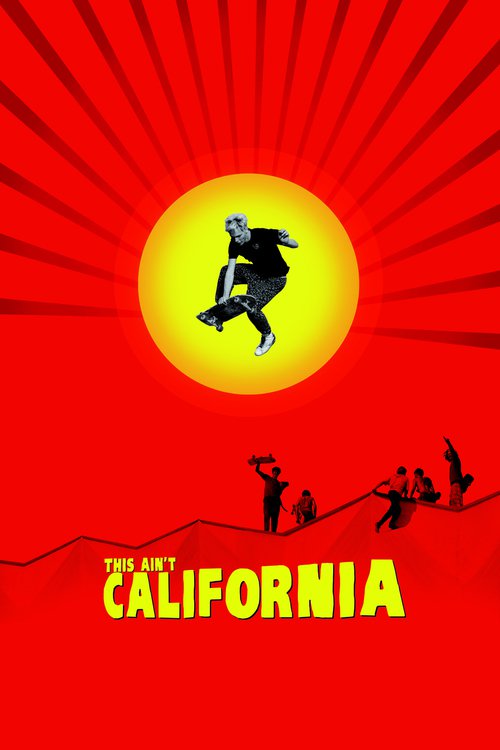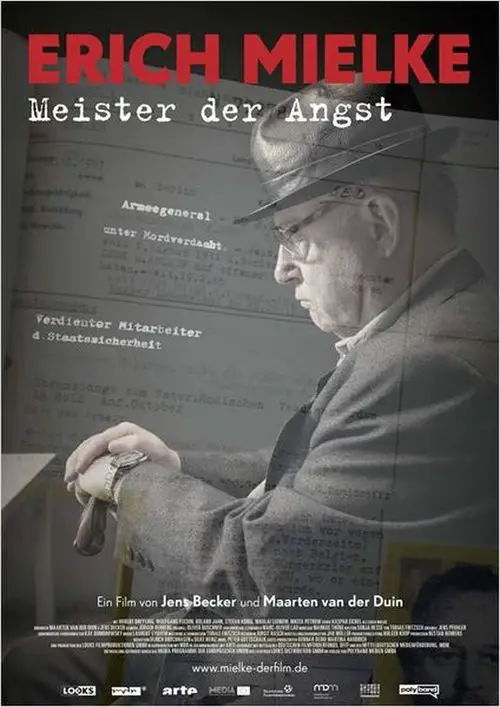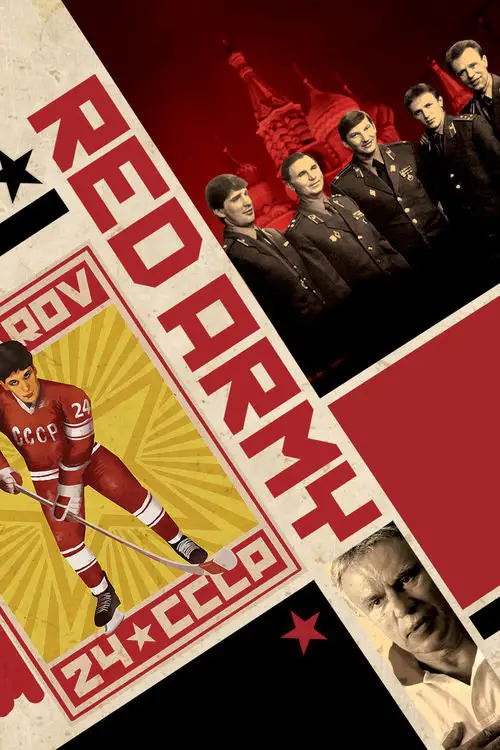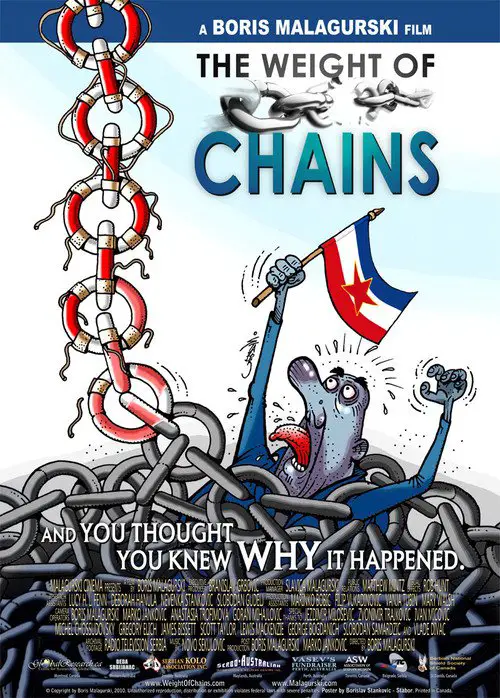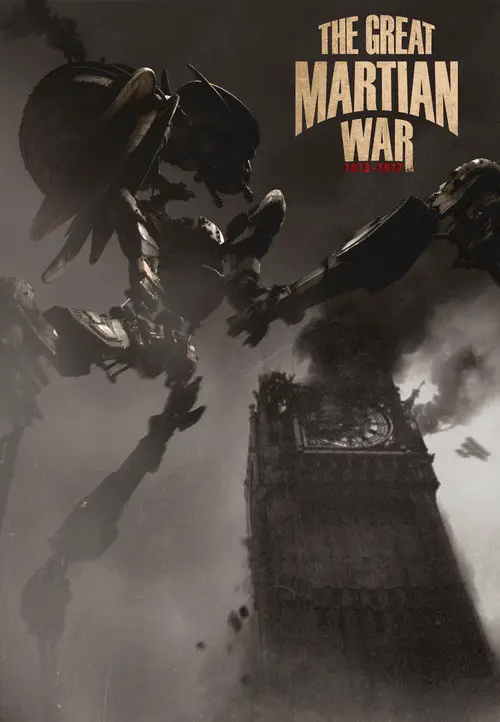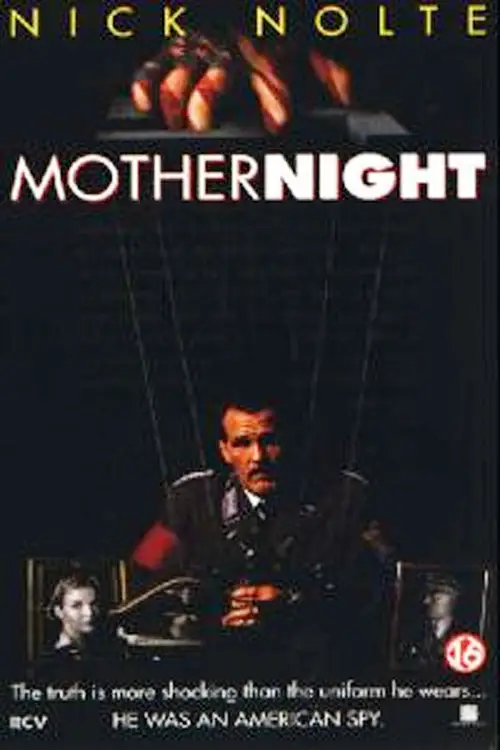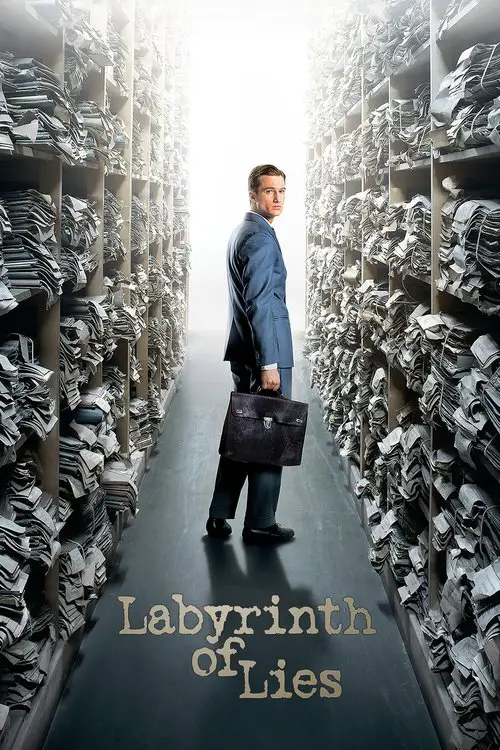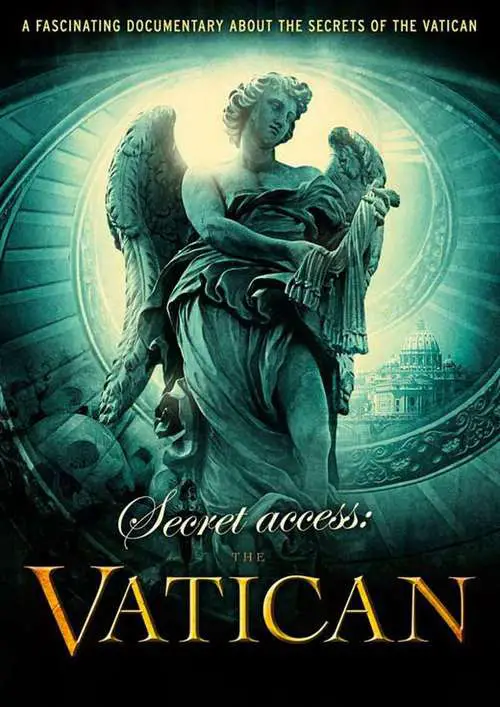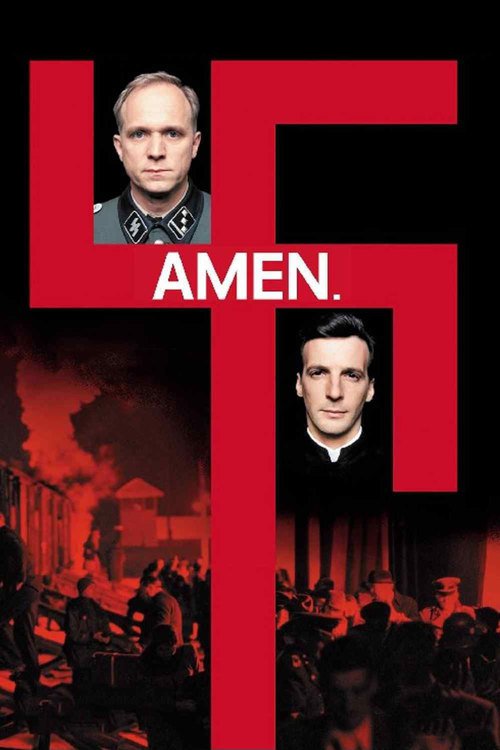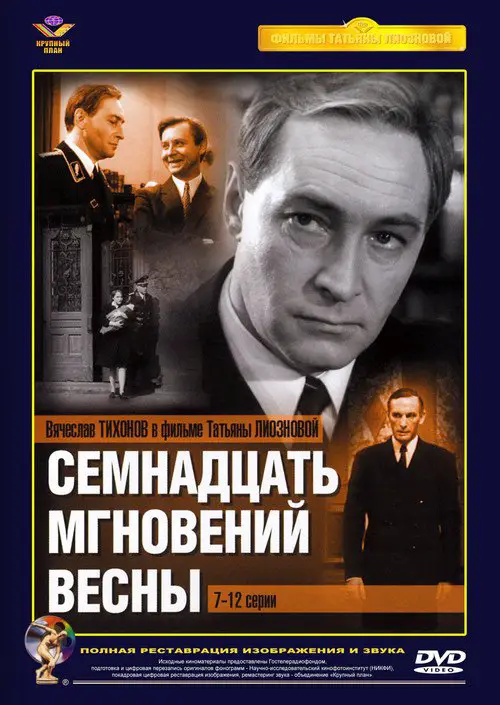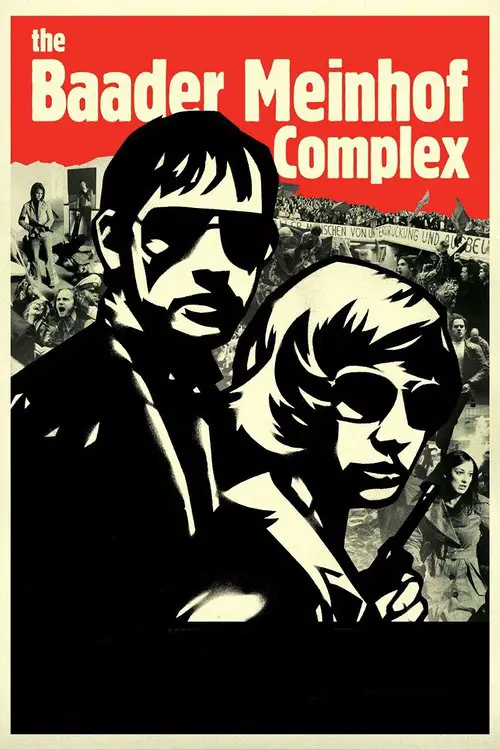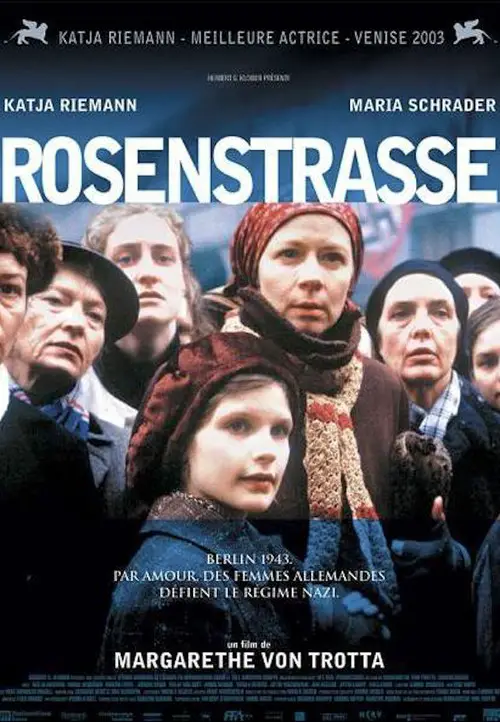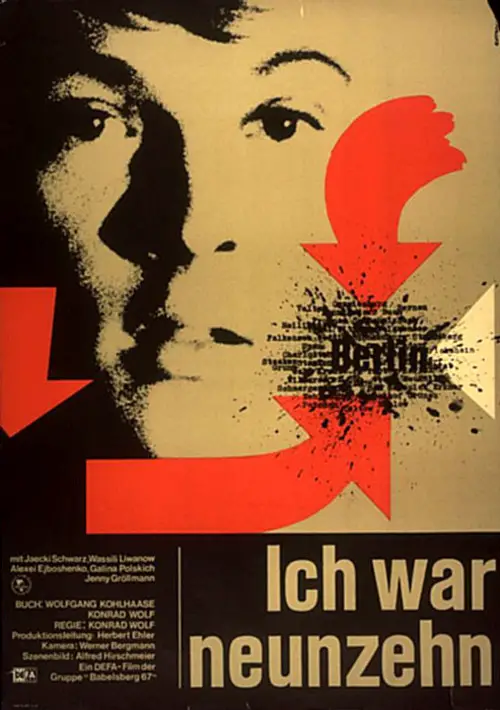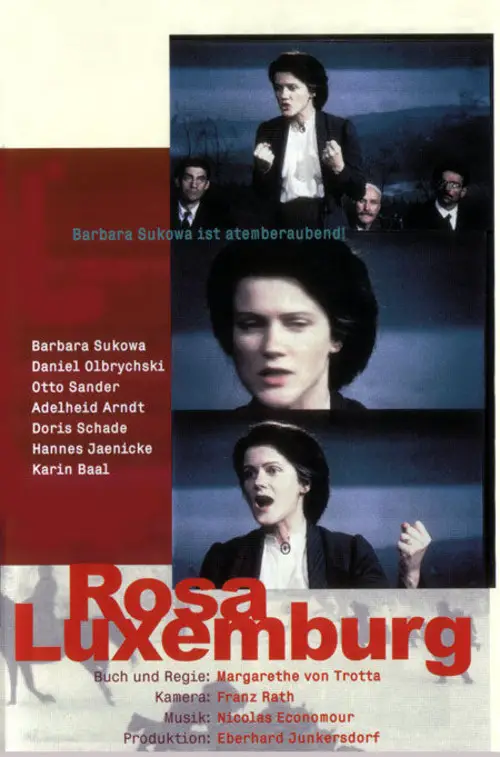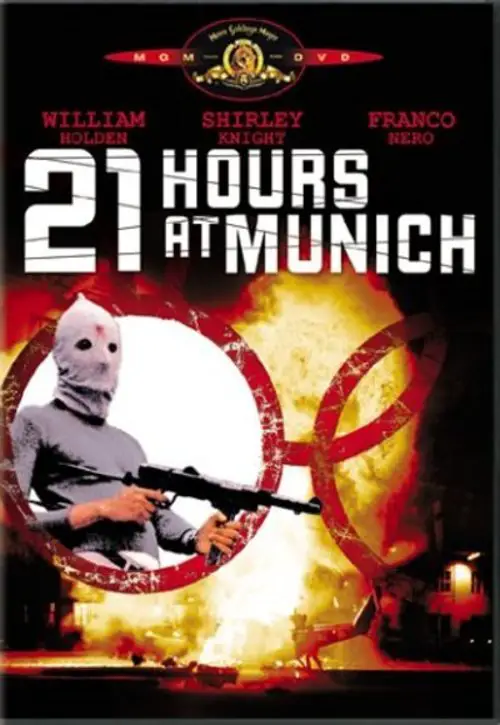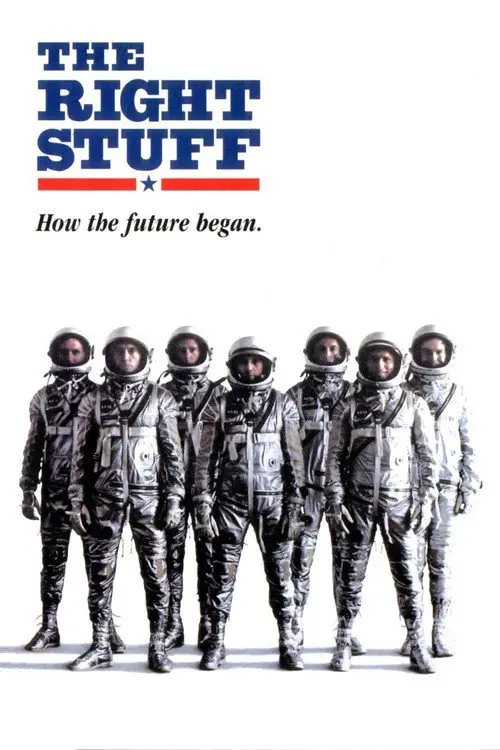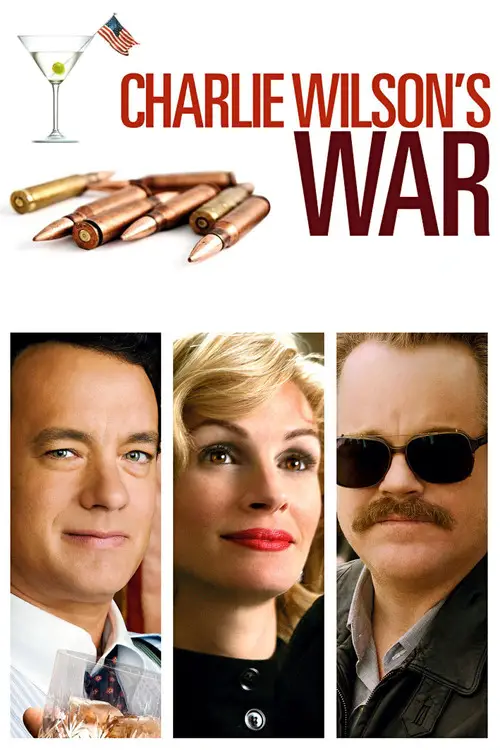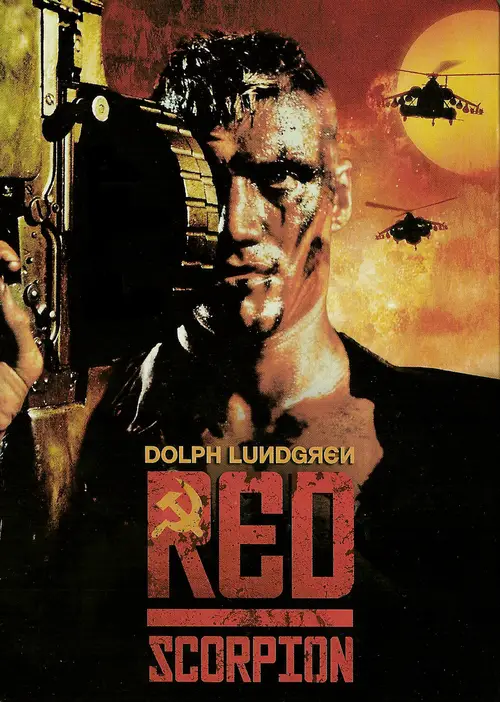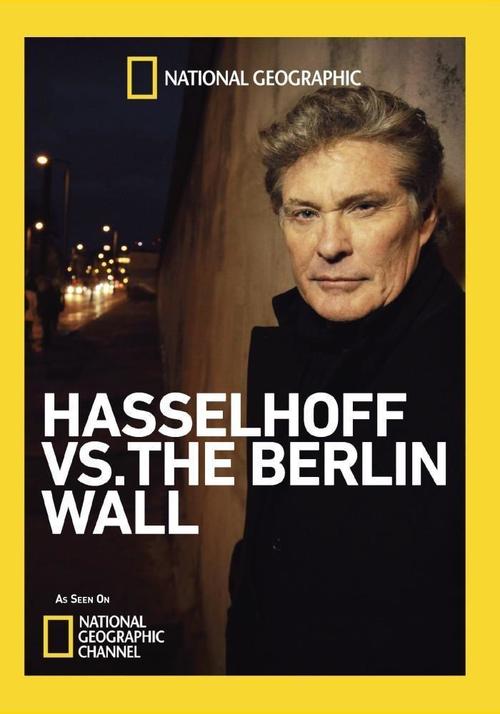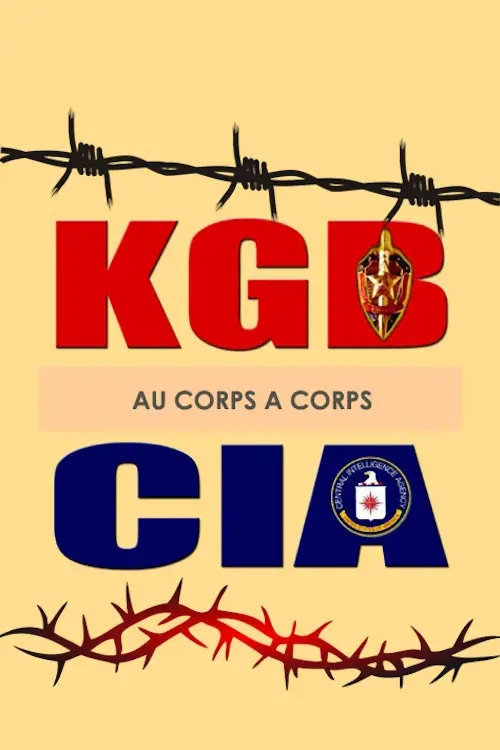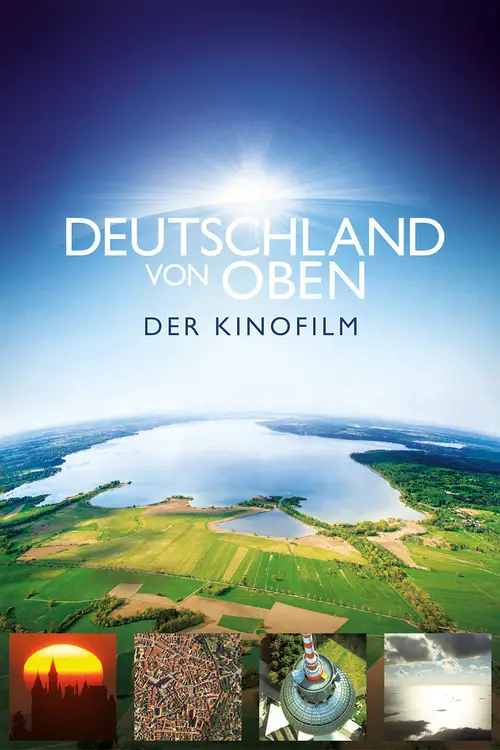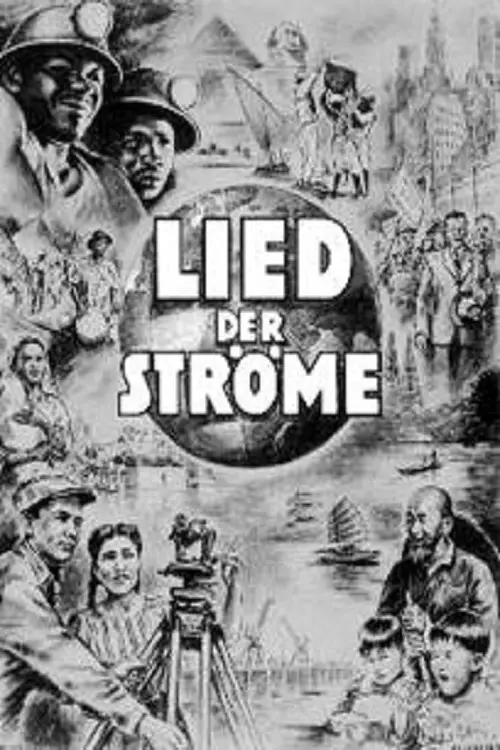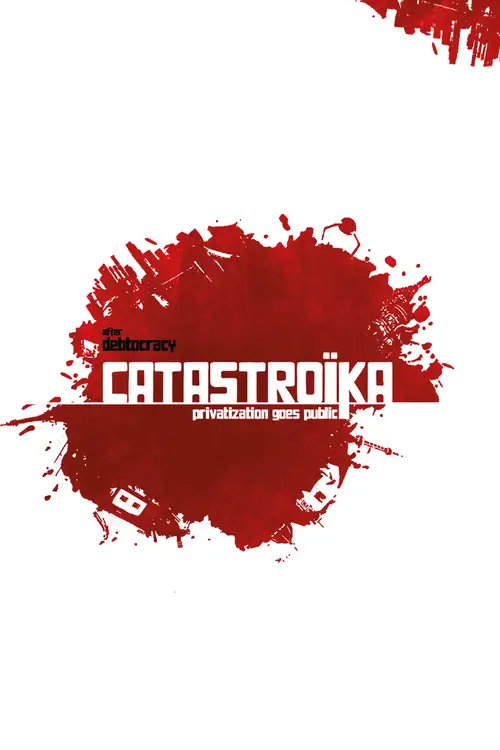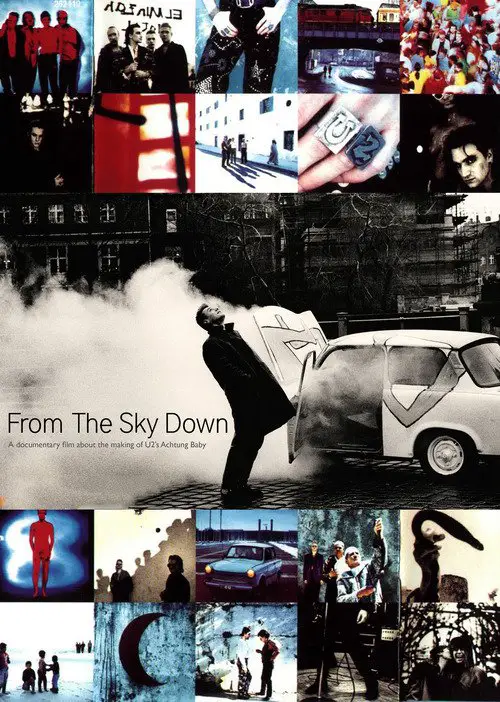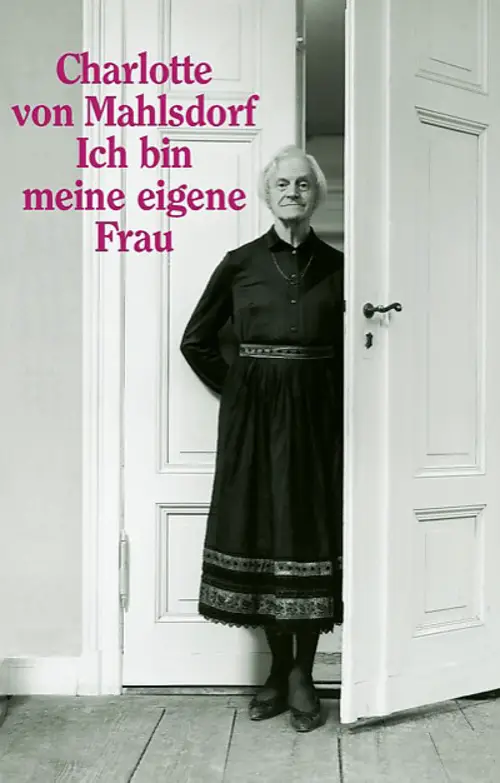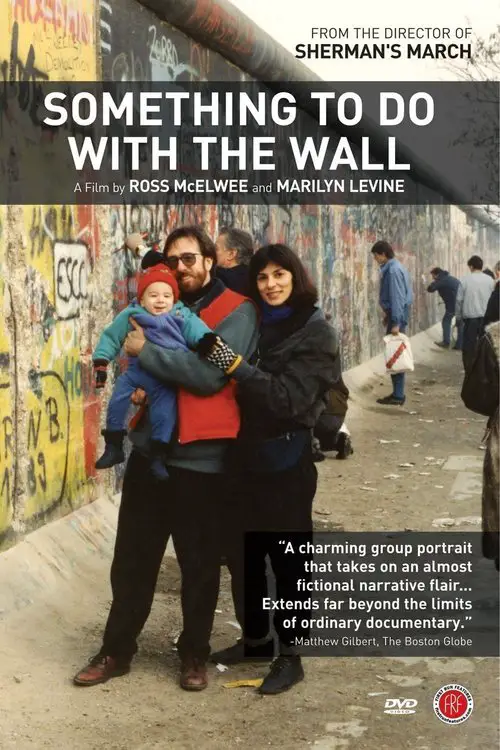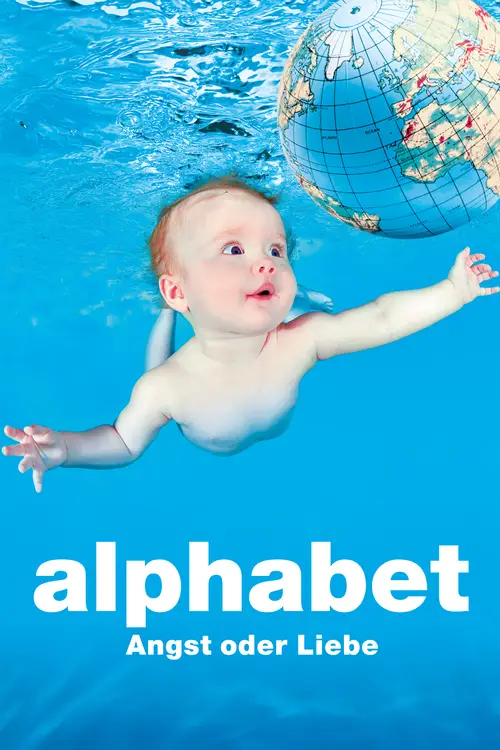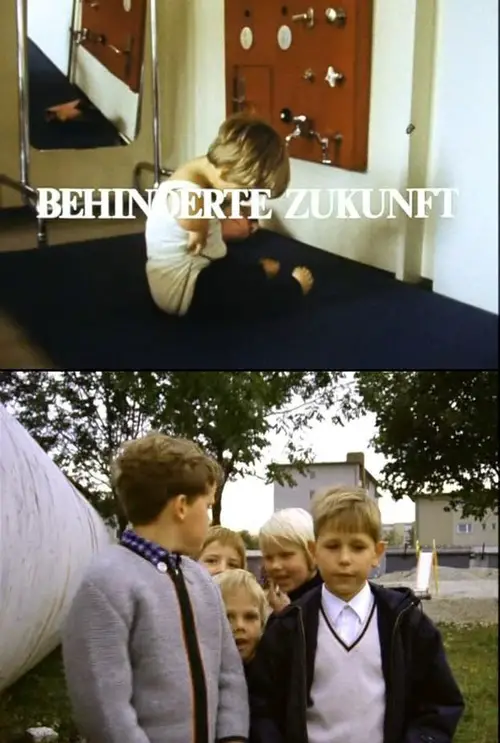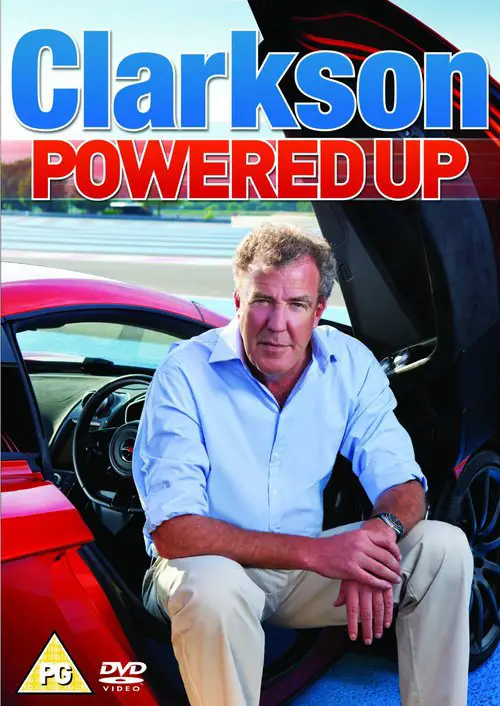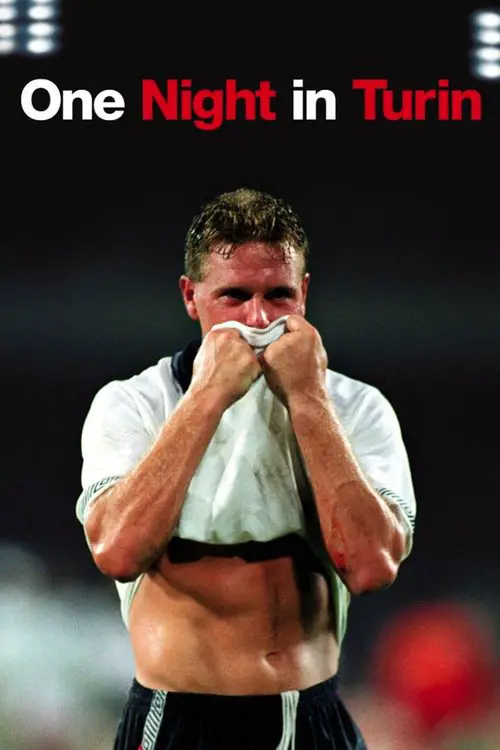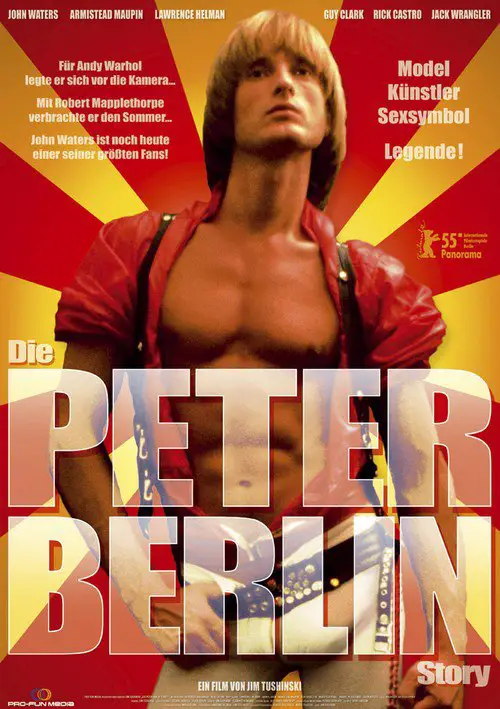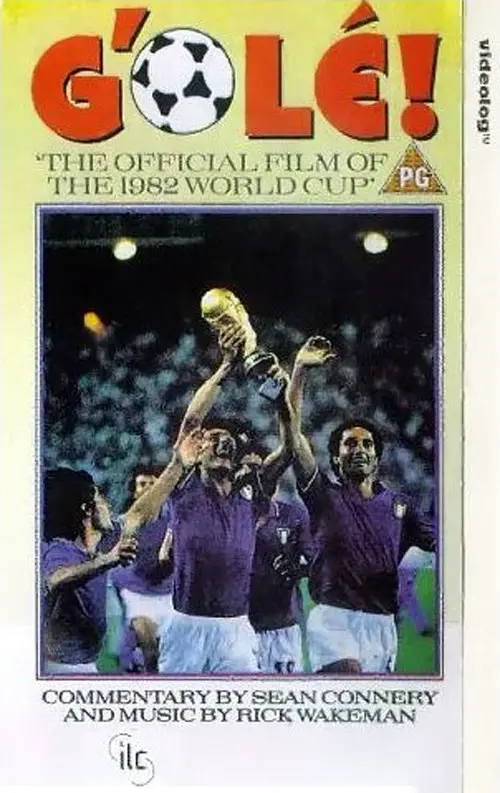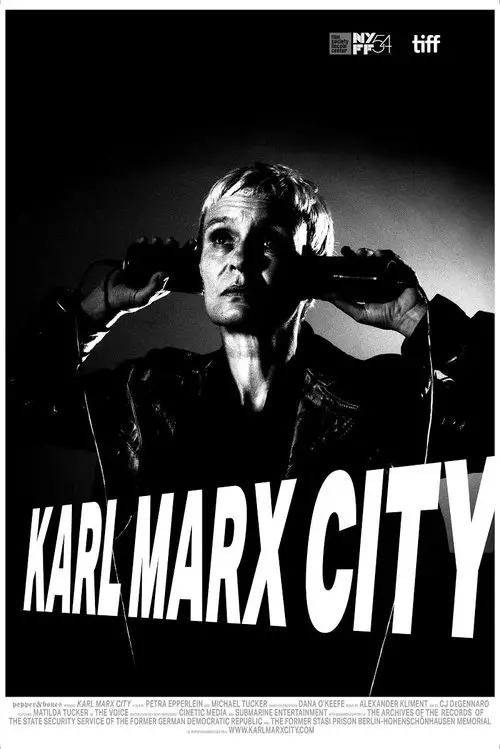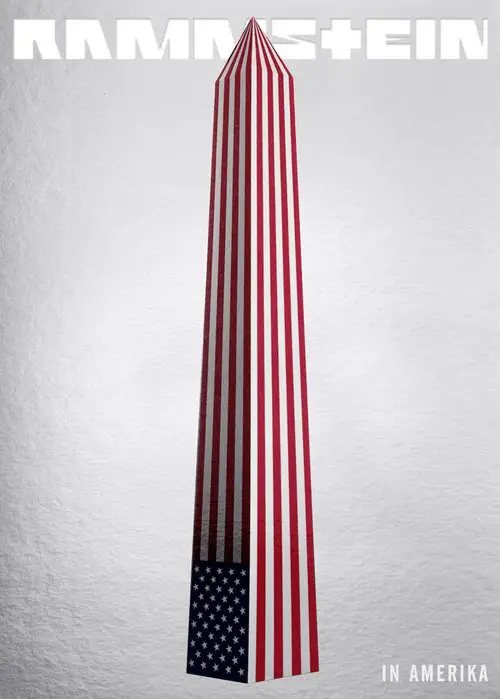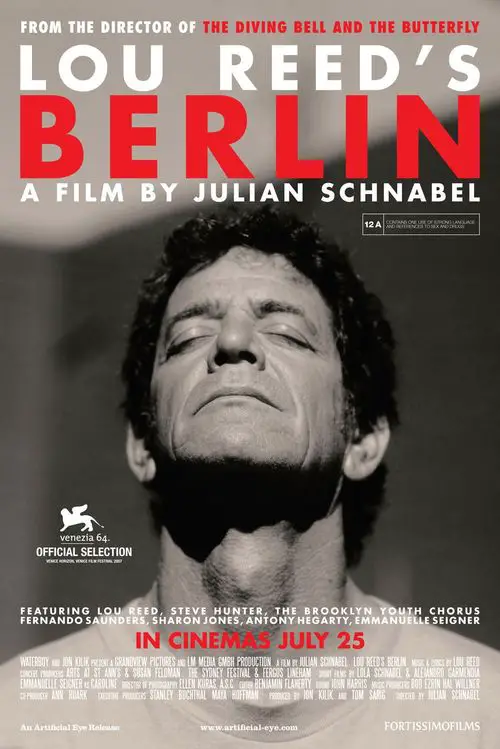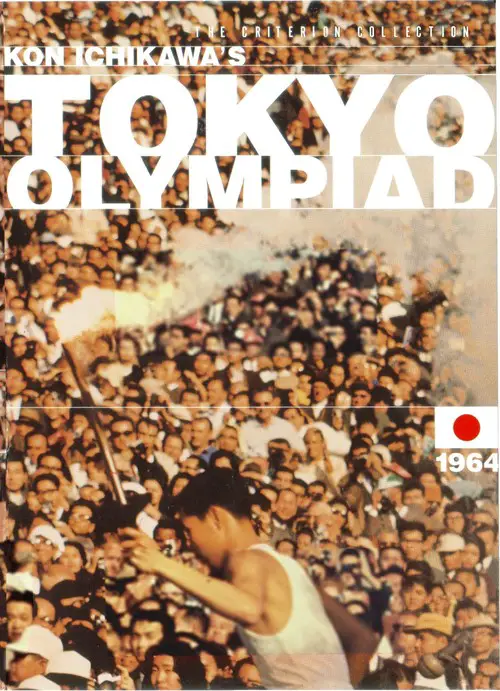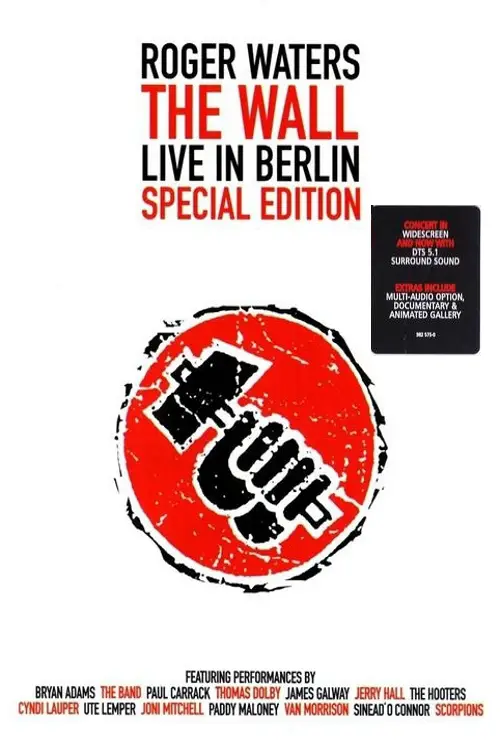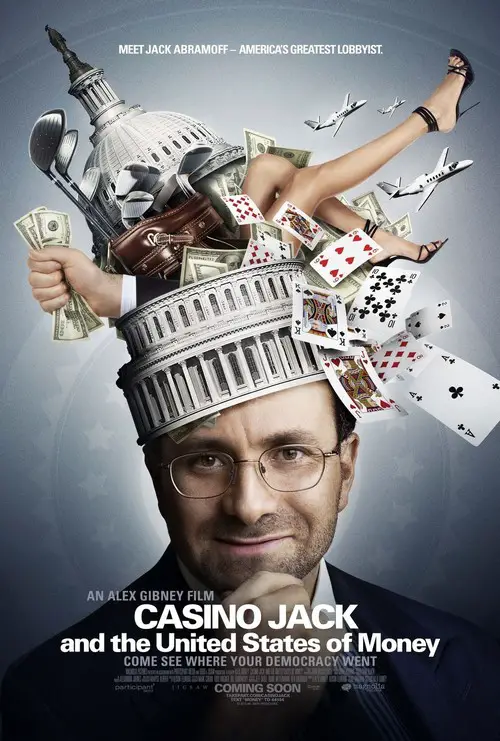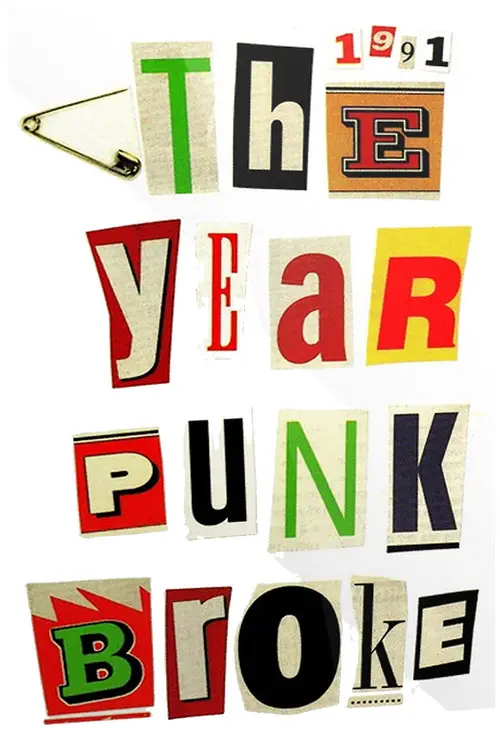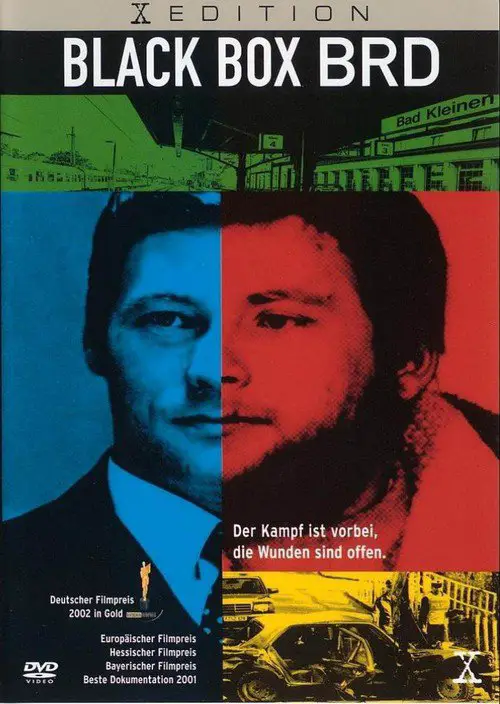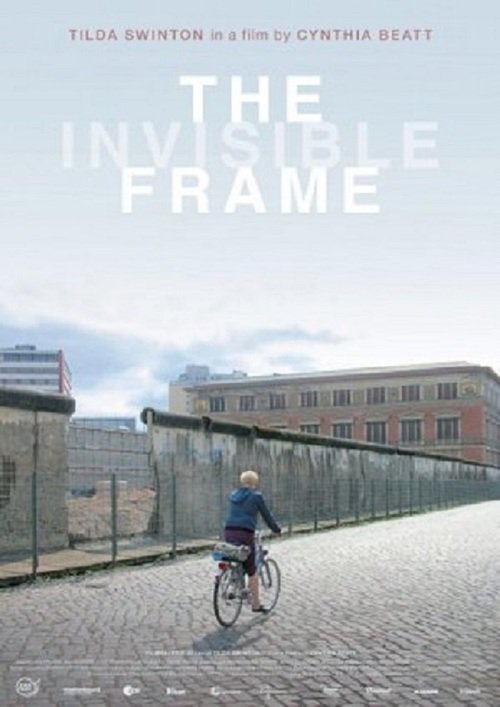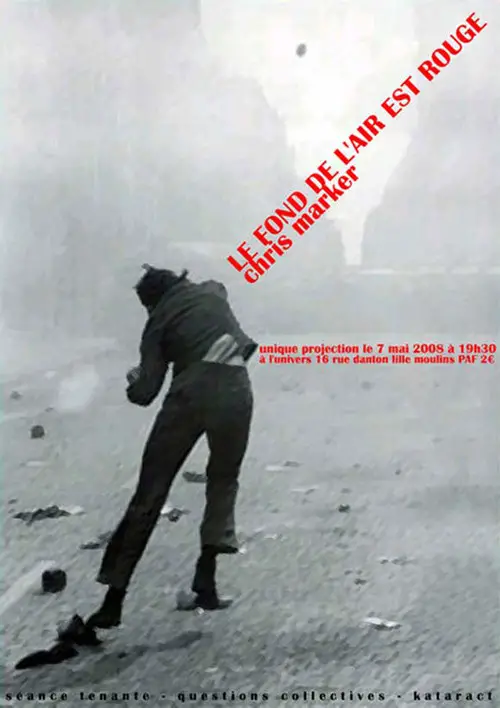November Days (1991)
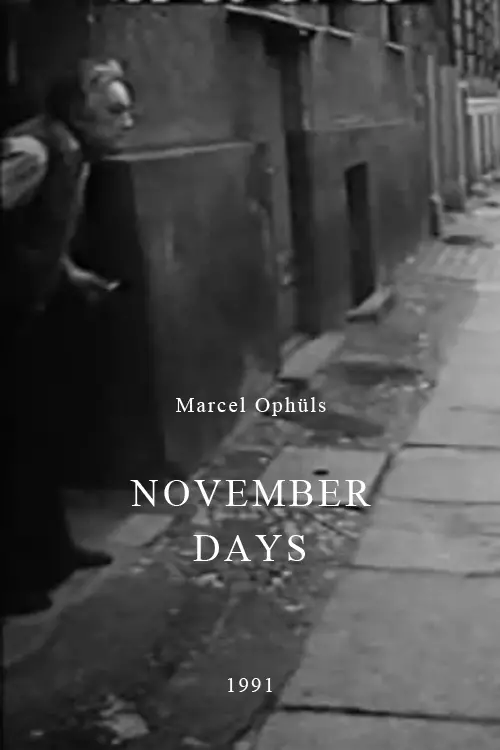
Similar movies
This Ain't California is a celebration of the lust for life, a contemporary documentary trip into the world of roller boarding in the German Democratic Republic. A coming-of-age tale of three teenagers and their passionate love for a sport on the crumbling tarmac of the streets in the German Democratic Republic, which was considered very ill-fitting. The punk fairy tale is a story of the subversive powers of fun in that part of Germany, which had lost touch with its citizens. The film follows its three heroes from their childhood in the seventies through their teenage rebellion in the eighties, ending in the last summer of their life in the German Democratic Republic in 1989, when their life changed forever, and follows them to 2011.
From Oscar and Emmy award winning filmmakers, Red Army highlights the Soviet Union's legendary and enigmatic hockey training culture and world-dominating team through the eyes of the team's Captain Slava Fetisov, following his shift from hockey star and celebrated national hero to political enemy. The film turns a unique lens on the social and cultural transformation of the Soviet Union leading up to the fall of Communism, mirroring the rise and fall of the Red Army team. A film by Gabe Polsky and Executive Producers Werner Herzog and Jerry Weintraub.
The Weight of Chains is a Canadian documentary film that takes a critical look at the role that the US, NATO and the EU played in the tragic breakup of a once peaceful and prosperous European state - Yugoslavia. The film, bursting with rare stock footage never before seen by Western audiences, is a creative first-hand look at why the West intervened in the Yugoslav conflict, with an impressive roster of interviews with academics, diplomats, media personalities and ordinary citizens of the former Yugoslav republics. This film also presents positive stories from the Yugoslav wars - people helping each other regardless of their ethnic background, stories of bravery and self-sacrifice.
Documentary-drama recounting the Martian War of 1913 - 1917. Europe was on tenterhooks in the 2nd decade of the 20th century, everyone was expecting a Great War between the major European powers. But then, in 1913, something crashed into the forests of SW Germany. Troops were sent to investigate but were wiped out. Martian fighting machines began making their way across Western Europe and the countries of Europe combined forces to resist them. With aspects taken from "The War of the Worlds" by H.G. Wells and from WWI itself, this dramatisation presents a documentary style look at events as they unfolded and the effect they had of our world today. Lots of references to real events including the mass attacks and defeats as men were thrown against machines on the Western front, the Christmas truce and the Angel of Mons, America's isolationism and late entry into the conflict, the worldwide "Spanish" flu epidemic that killed more people than the war, and many other things.
The film takes you on a journey inside the Vatican like you've never seen it before. From the ancient "City of the Dead" beneath St. Peter's basilica to the vaults of the Secret Archives, to the Pope's private offices and TV room. The show also explores the long and tumultuous relationship between the Vatican and the U.S., uncovering documents that date back to the Civil War and exploring Reagan's relationship with John Paul II in their quest to combat the Soviets during the Cold War.
In April of 1945, Germany stands at the brink of defeat with the Russian Army closing in from the east and the Allied Expeditionary Force attacking from the west. In Berlin, capital of the Third Reich, Adolf Hitler proclaims that Germany will still achieve victory and orders his generals and advisers to fight to the last man. When the end finally does come, and Hitler lies dead by his own hand, what is left of his military must find a way to end the killing that is the Battle of Berlin, and lay down their arms in surrender.
The film "Amen." examines the links between the Vatican and Nazi Germany. The central character is Kurt Gerstein, a member of the Institute for Hygiene of the Waffen-SS who is horrified by what he sees in the death camps. Moreover, he is shocked to learn that the process he used to purify water for his troops, by using zyklon, served as a basis to kill people in gas chambers.
The series is based on a true story of a Russian spy Colonel Isaev (Stirlitz) in Fascist Germany during 17 days in very end of WWII. Stirlitz has worked his way to the very top of the Fascist hierarchy without being caught. However, his "colleagues", top Hitler's officers Borman, Mueller, Schellenberg are beginning to suspect him. Stirlits is constantly walking on the edge between his two identities, sending information to Russia, while skillfully maintaining the appearance of loyalty to fascist regime.
Berlin 1943/44 ("The Battle of Berlin"). Felice, an intelligent and courageous Jewish woman who lives under a false name, belongs to an underground organization. Lilly, a devoted mother of four, though an occasional unfaithful wife, is desperate for love. An unusual and passionate love between them blossoms despite the danger of persecution and nightly bombing raids. The Gestapo is on Felice's trail. Her friends flee, she decides to sit out the war with Lilly. One hot day in August 1944, the Gestapo is waiting in Lilly's flat...
Wounded in Africa during World War II, Nazi Col. Claus von Stauffenberg returns to his native Germany and joins the Resistance in a daring plan to create a shadow government and assassinate Adolf Hitler. When events unfold so that he becomes a central player, he finds himself tasked with both leading the coup and personally killing the Führer.
Der Baader Meinhof Komplex depicts the political turmoil in the period from 1967 to the bloody "Deutschen Herbst" in 1977. The movie approaches the events based on Stefan Aust's standard work on Die Rote Armee Fraktion (RAF). The story centers on the leadership of the self named anti-fascist resistance to state violence: Andreas Baader, Ulrike Meinhof and Gudrun Ensslin.
In the winter of 1944, the Allied Armies stand ready to invade Germany at the coming of a New Year. To prevent this occurrence, Hitler orders an all out offensive to re-take French territory and capture the major port city of Antwerp. "The Battle of the Bulge" shows this conflict from the perspective of an American intelligence officer as well as from a German Panzer Commander
When Ruth's husband dies in New York, in 2000, she imposes strict Jewish mourning, which puzzles her children. A stranger comes to the house - Ruth's cousin - with a picture of Ruth, age 8, in Berlin, with a woman the cousin says helped Ruth escape. Hannah, Ruth's daughter engaged to a gentile, goes to Berlin to find the woman, Lena Fisher, now 90. Posing as a journalist investigating intermarriage, Hannah interviews Lena who tells the story of a week in 1943 when the Jewish husbands of Aryan women were detained in a building on Rosenstrasse. The women gather daily for word of their husbands. The film goes back and forth to tell Ruth and Lena's story. How will it affect Hannah?
April 1945: Gregor Hecker, 19 years of age, reaches the outskirts of Berlin as part of the Red Army's scouting team. Having fled Germany with his family when he was eight, he is confronted with the dilemma of having to fight men from the very country he was born in. Through dealing with challenging situations (e.g. he is appointed commander of Bernau, talks to many disillusioned Germans, and is once and again attacked by scattered groups of German soldiers), he grows more confident that not all hope is lost for post-war Germany.
Wronke Prison, 1916. Social democrat Rosa Luxemburg faces a mock execution. Twenty years earlier, Rosa's political gifts are acknowledged by everyone, as she struggles for democratic government in Germany and revolution in Poland. There she works closely with Leo Jogiches. Their political activity creates some difficulty for their personal relationship... As international tensions rise, Rosa makes speeches denouncing war and militarism. She seems too radical for her fellow Socialists. She meets Karl Liebknecht. When World War I begins, Rosa and Karl are united in opposition...
The Nazis, exasperated at the number of escapes from their prison camps by a relatively small number of Allied prisoners, relocates them to a high-security "escape-proof" camp to sit out the remainder of the war. Undaunted, the prisoners plan one of the most ambitious escape attempts of World War II. Based on a true story.
Tom Wolfe's book on the history of the U.S. Space program reads like a novel, and the film has that same fictional quality. It covers the breaking of the sound barrier by Chuck Yeager to the Mercury 7 astronauts, showing that no one had a clue how to run a space program or how to select people to be in it. Thrilling, funny, charming and electrifying all at once.
In 1980, the United States Ice Hockey team's coach, Herb Brooks, put a ragtag squad of college kids up against the legendary juggernaut from the Soviet Union at the Olympic Games. Despite the long odds, Team USA carried the pride of a nation yearning for a distraction from world events. With the world watching, the team rose to the occasion, prompting broadcaster Al Michaels' now famous question to the millions viewing at home: "Do you believe in miracles?" Yes!
Fontane Effi Briest is a German made film based on one of the most famous German novels by Theodor FontaneEffi Briest (Hanna Schygulla) is a socially ambitious, 17-year-old German girl who accepts a proposal of marriage from Baron Geert Von Instetten, a much older diplomat. Unfortunately, neither the Baron's family nor anyone in the secluded town she now calls home accept Effi as an equal. Starved for companionship, Effi begins an innocent friendship with a well-known womanizer that may jeopardize her position as the Baron's wife.
Danton (Gérard Depardieu) and Robespierre (Wojciech Pszoniak) were close friends and fought together in the French Revolution, but by 1793 Robespierre was France's ruler, determined to wipe out opposition with a series of mass executions that became known as the Reign of Terror. Danton, well known as a spokesman of the people, had been living in relative solitude in the French countryside, but he returned to Paris to challenge Robespierre's violent rule and call for the people to demand their rights. Robespierre, however, could not accept such a challenge, even from a friend and colleague, and he blocked out a plan for the capture and execution of Danton and his allies.
David Hasselhoff, better known for his roles in âKnight Riderâ and âBaywatchâ released a song titled, âLooking for Freedomâ the year before the Berlin Wall came down. He performed it on top of the Berlin Wall to a million people during the biggest New Year's Eve party Germany had ever seen. Twenty five years later, David revisits the now-reunited capital, investigating what is left of the Wall, and explores what it meant in the context of the Cold War dividing Communism in the East from democracy in the West. Along his journey he meets extraordinary people who dreamt of freedom and risked their lives trying to overcome the dreaded Berlin Wall.
Germany in Autumn does not have a plot per se; it mixes documentary footage, along with standard movie scenes, to give the audience the mood of Germany during the late 1970s. The movie covers the two month time period during 1977 when a businessman was kidnapped, and later murdered, by the left-wing terrorists known as the RAF-Rote Armee Fraktion (Red Army Faction). The businessman had been kidnapped in an effort to secure the release of the orginal leaders of the RAF, also known as the Baader-Meinhof gang. When the kidnapping effort and a plane hijacking effort failed, the three most prominent leaders of the RAF, Andreas Baader, Gudrun Enslin, and Jean-Carl Raspe, all committed suicide in prison. It has become an article of faith within the left-wing community that these three were actually murdered by the state.
The Song of the Rivers, or Das Lied der Ströme, is a 1954 documentary production by the East Germany's Deutsche Film-Aktiengesellschaft (DEFA). Dutch filmmaker Joris Ivens was the leading director. The sprawling film celebrates international workers movements along six major rivers: the Volga, Mississippi, Ganges, Nile, Amazon and the Yangtze. Shot in many countries by different film crews, and later edited by Ivens, Song of the Rivers begins with a lyrical montage of landscapes and laborers and proceeds to glorify labor and modern industrial machinery. The musical score is by Dmitri Shostakovich, with lyrics written by Berthold Brecht, and songs performed by German communism's star Ernst Busch and famous American actor, singer and activist Paul Robeson who also narrates. Song of the Rivers is an ode to international solidarity.
This documentary film is about the making of U2's Achtung Baby. In 2011, U2 returned to Hansa Studios in Berlin to discuss the making of Achtung Baby. This film is directed by Davis Guggenheim. Screened in the UK as part of the BBC's Imagine series, this film was the first ever documentary to open the prestigious Toronto International Film Festival. Included is bonus footage of "So Cruel," "Love is Blindness," and "The Fly" shot in May 2010 during the band's visit to Hansa Studios to mark the 20th anniversary of Achtung Baby. Also included is a Q&A with Bono, The Edge, and Davis Guggenheim filmed at the Toronto International Film Festival in September 2011.
The life story of Charlotte von Mahlsdorf, born Lothar Berflede. Miss Charlotte survived the Nazi reign and the repression of the Communists as a transsexual woman and helped start the German gay liberation movement. Documentary with some dramatized scenes. Two actors play the young and middle aged Charlotte and she plays herself in the later years.
In 1986, Ross McElwee (Sherman's March) and Marilyn Levine were making a film about the 25th anniversary of the Berlin Wall, when the imposing structure was still very much intact as the worldâs most visible symbol of hardline Communism and Cold War lore. They thought they were making a documentary on the community of tourists, soldiers, and West Berliners who lived in the seemingly eternal presence of the graffiti emblazoned eyesore. But in 1989, as the original film neared completion, the Wall came down, and McElwee and Levine returned to Berlin, this time to capture the radically different atmosphere of the reunified city.
Iâm in the South of France. My base? The high-tech testing ground for Formula One Circuit Paul Ricard. My mission? To find find my favourite car of the year. There's a pair of Ferraris, the V12, 6.3 litre FF and the 458. Thereâs the UK challenger to the 458, McLarenâs MP4-12C. The latest gizmo-laden Nissan GTR, Porsche's GT2 RS, the 570-horsepower Lamborghini Performante and the fun BMW 1M. Helping me are The Stig and Formula One new boy, Karun Chandhok. I look into the future, in the shape of the hybrid-engined Mugen Honda CR-Z, And there are blasts from the past as well. The beautiful Eagle Speedster a modern twist on the iconic, timeless E-Type, with its 4.7 litre engine and an eye-watering £500,000 price tag. And there's the all new Jensen Interceptor R with its 6.2 litre Corvette motor. The mighty Brutus, a vintage car fitted with a flame-spitting BMW airplane engine. Also the single-seater, B.A.C. Mono - capable of 0-60 in 2.8 seconds. What more could you want?...
Before the Premier League and multi-million pound salaries, in England 'football' was a dirty word. The game was in disgrace, the fans, hooligans, the nation, it seemed, were all played out. Then there was Italia '90 - The World Cup - a shot at redemption. But this was no ordinary World Cup and no ordinary time. The manager, Sir Bobby Robson, was under intense media scrutiny, and his team described as 'donkeys'. Yet over six short weeks, through their heroic exploits they united a nation, coming within a heart beat of reaching the World Cup Final. Narrated by Gary Oldman, featuring match action - from Platt's last-gasp winner against Belgium to the silky skills of Gazza and the cool finishing of Linekar - and previously unseen footage, this is the definitive story of England's greatest footballing adventure on foreign soil....so far.
He slept with Sal Mineo, was photographed by Andy Warhol, and he was lusted after by millions of men around the world. Model, photographer, filmmaker, clothing designer, and porn icon Peter Berlin is his own greatest creation. Berlin is front and center in this bio documentary from director Jim Tushinski, and featuring interviews with director John Waters, novelist Armistead Maupin, 70s porn director Wakefield Poole and more, all with Berlin as the subject. This intimate film reveals the legendary man with the white saran wrapped pants, undersized leather vests, and Dutch-boy haircut
This is the official FIFA film of the 1982 World Cup Finals in Spain. Runs 98 minutes and includes commentary by Sean Connery with a special score composed by Rick Wakeman. Not your average footie film, this is a stunning record of the 1982 tournament finals which included England and Northern Ireland and culminated in Italy's thrilling victory against West Germany.
Petra Epperlein and Michael Tucker (Gunner Palace, The Prisoner or: How I Planned to Kill Tony Blair) take a powerfully personal journey through the former East Germany, as Epperlein investigates her fatherâs 1999 suicide and the possibility that he may have worked as a spy for the dreaded Stasi security service.
Taking Liberties Since 1997is a documentary film about the erosion of civil liberties in the United Kingdom and increase of surveillance under the government of Tony Blair. It was released in the UK on 8th June 2007. The director, Chris Atkins, said on 1 May that he wanted to expose "the Orwellian state" that now threatened Britain as a result of Mr Blair's policies.
Kon Ichikawa documents the 1964 Summer Olympics in Tokyo. Like Leni Riefenstahl's Olympia, which documented the 1936 Summer Olympics in Berlin, Ichikawa's film was considered a milestone in documentary filmmaking. However, Tokyo Olympiad keeps its focus more on the atmosphere of the games and the human side of the athletes instead of concentrating only on the winners and the results.
A recording of the 1990 Berlin benefit concert in which Roger Waters leads an all star cast in performing his famous concept album.A global television broadcast of the event in which former Pink Floyd leader singer and composer Roger Waters led an all-star cast in a mammoth benefit performance of his acclaimed concept album/concert, The Wall, in support of The War Memorial Fund for Disaster Relief. Set in Berlin, Germany less than a year after the destruction of the hated Berlin Wall, Waters was accompanied by disparate talents such as Cyndi Lauper, James Galway, Joni Mitchell and Albert Finney in the classic dark musical tale of a rock star's descent into madness and back. The performance was subsequently released as a top-selling video.
A feature-length documentary to show why Britain should vote to LEAVE the EU - and would thrive outside of it. Brexit: The Movie spells out the danger of staying part of the EU. Is it safe to give a remote government beyond our control the power to make laws? Is it safe to tie ourselves to countries which are close to financial ruin, drifting towards scary political extremism, and suffering long-term, self-inflicted economic decline?
In 1988 Cynthia Beatt and the young Tilda Swinton embarked on a filmic journey along the Berlin Wall into little-known territory. The film CYCLING THE FRAME is now an unusual document. 21 years later, in June 2009, Beatt & Swinton re-traced the line of the Wall that once isolated West Berlin. THE INVISIBLE FRAME depicts this poetic passage through varied landscapes, this time on both sides of the former Wall.
© Valossa 2015–2026
| Privacy Policy
